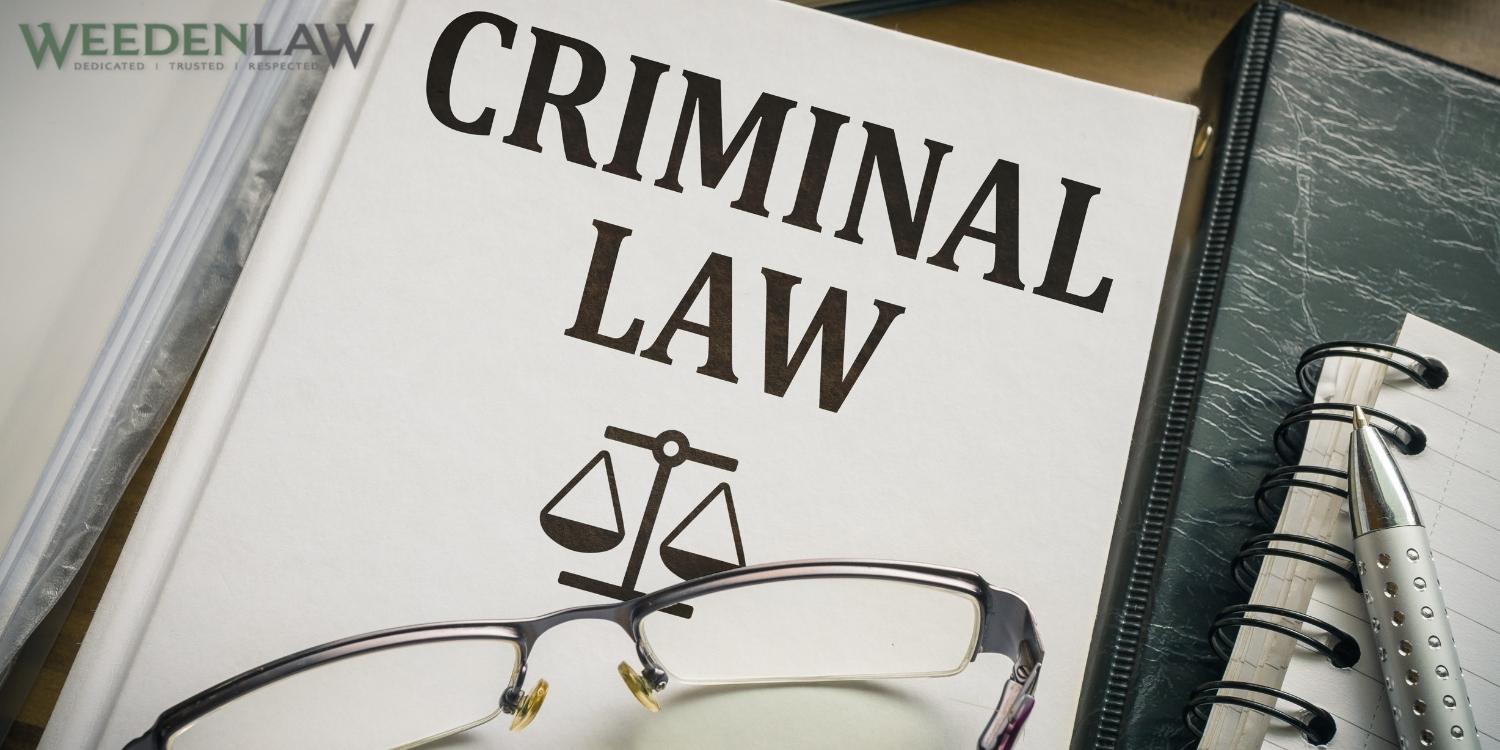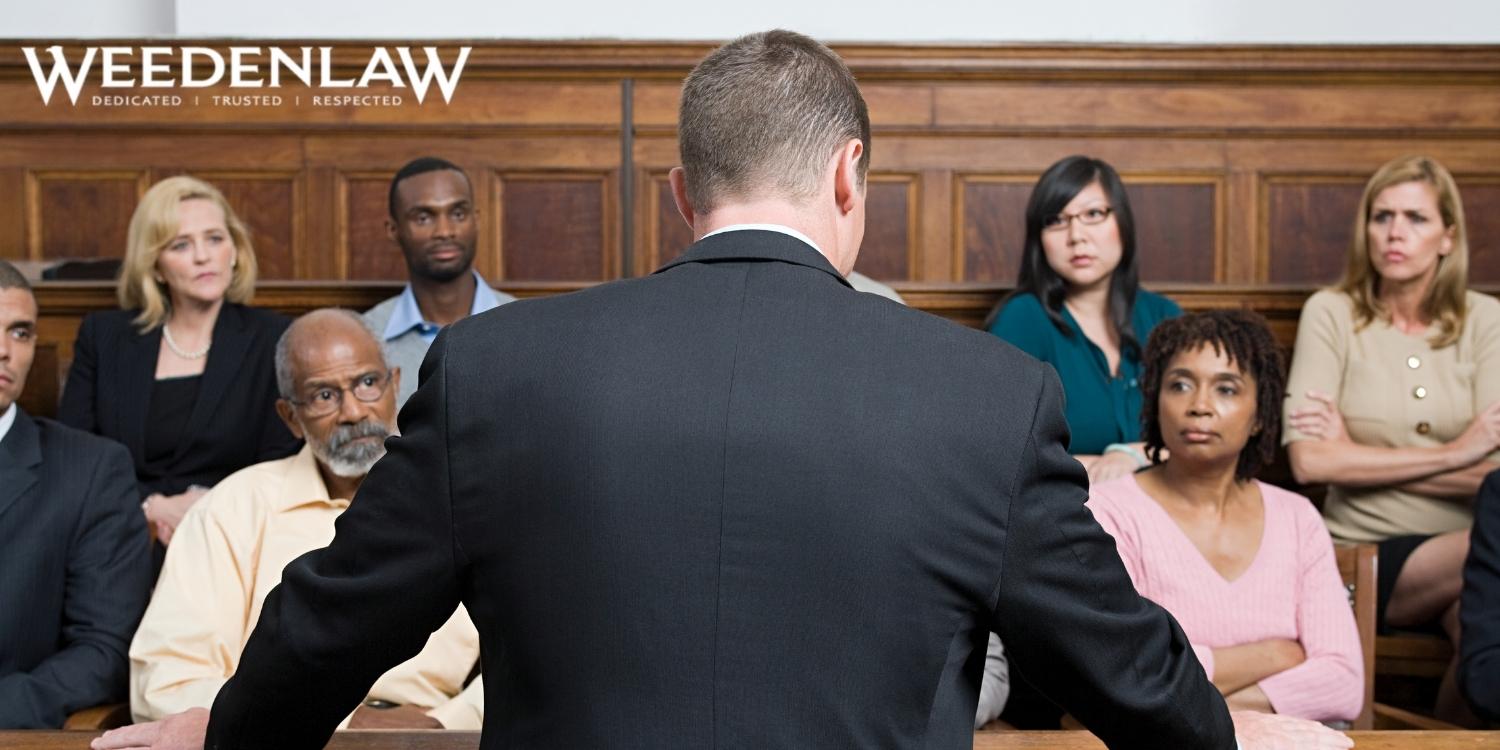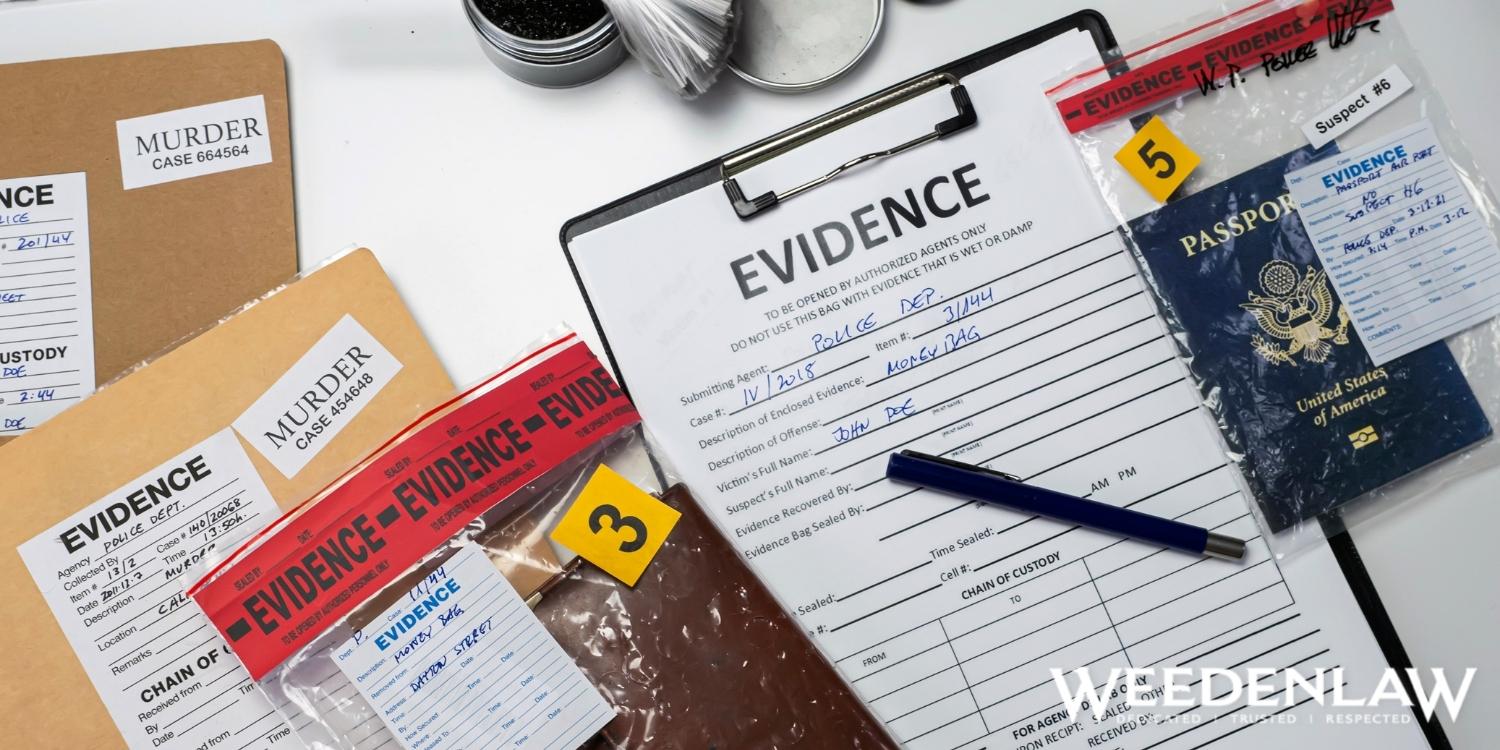In Colorado criminal law, a criminal defendant is presumed innocent until the prosecuting attorney can prove guilt beyond a reasonable doubt for the crime charged. While you often tend to hear these phrases on legal television shows, you may still wonder what they actually mean.
In this blog post, the knowledgeable criminal defense attorneys from WeedenLaw explain reasonable doubt and how our law firm can help establish it during your criminal case. If you’re facing a criminal conviction, contact Denver criminal defense lawyer Jeff Weeden at (720) 307-4330 or complete our online intake form to schedule a free initial consultation today.
What is Reasonable Doubt?
In the criminal justice system, reasonable doubt is the phrase used to describe a lack of evidence that prevents the judge or jury from finding a defendant guilty. It goes beyond the traditional standard of proof that is necessary to find a defendant guilty.
During a Colorado criminal case, jurors are asked to give fair and rational consideration regarding the evidence and case presented. This means they should not rush judgment and thoroughly examine all case elements. Jurors should reach a verdict based on justice, fairness, and reason.
Reasonable Doubt Legal Definition
The legal definition of reasonable doubt is the level of doubt or uncertainty about a defendant’s guilt that must exist in the minds of jurors or decision-makers in a criminal trial for the defendant to be acquitted. It is a standard of proof that requires the prosecution to demonstrate the defendant’s guilt to such an extent that no reasonable doubt is left in the jurors’ minds.
In other words, reasonable doubt is the doubt that prevents someone from being firmly convinced of a defendant’s guilt after considering all the evidence presented in court. It is a high standard of proof designed to protect the rights of the accused and ensure that individuals are not wrongfully convicted.
What “Beyond a Reasonable Doubt” Means
Beyond a reasonable doubt means that the evidence presented by the prosecution and their arguments have established the defendant’s guilt so strongly that any reasonable person would accept it as fact. If the jury cannot decide based on the evidence if the defendant is guilty, they must find the defendant not guilty due to reasonable doubt.
Colorado Reasonable Doubt Laws
There is no Colorado criminal law that defines reasonable doubt. Instead, the Colorado criminal justice system provides instructions to the jury explaining the reasonable doubt standard. These instructions explain that reasonable doubt is not imaginary doubt or up for speculation. Instead, reasonable doubt in Colorado criminal trials hinges on the evidence and facts presented during cases.
Revised Reasonable Doubt Instruction
At the beginning of 2023, the Colorado Supreme Court changed the explanation for reasonable doubt. This updated explanation tells jurors that proof beyond a reasonable doubt is “proof that leaves you firmly convinced of the defendant’s guilt.”
Before the update, jurors were told that doubt is not vague, imaginary, or speculative but such a doubt that would cause reasonable people to hesitate.

How To Create Reasonable Doubt
At WeedenLaw, we understand the profound importance of establishing reasonable doubt in jurors’ minds. It is the critical threshold prosecutors must cross to secure a conviction, providing a vital shield for the accused.
Your Colorado criminal defense attorney will use various strategies and techniques to establish reasonable doubt in criminal cases. Establishing reasonable doubt can be done in many ways, including presenting alibi evidence, challenging witness credibility, questioning police conduct, and more.
Challenging Witness Credibility
Part of creating reasonable doubt is questioning the credibility of the witness chosen by the prosecution. Eye-witness testimony is extremely inconsistent and can often lead to wrongful convictions. During your criminal trial, attorney Jeff Weeden will know how to question and push the witnesses to diminish their credibility. When jurors can’t trust what the witness is saying, it creates reasonable doubt.
Presenting Alibi Evidence
An alibi is a rock-solid assertion that the accused could not have committed the alleged crime because they were elsewhere when it occurred. When introduced effectively in Colorado criminal cases, alibi evidence can cast substantial doubt on the prosecution’s case by creating a plausible alternative scenario.
This type of evidence typically involves providing witnesses, documents, or surveillance footage that can corroborate the defendant’s claim of being in a different location during the commission of the crime. By doing so, defense attorneys can raise questions about the accuracy and reliability of the prosecution’s evidence, shifting the burden of proof and forcing the jury to consider whether the defendant’s alibi establishes reasonable doubt regarding their guilt.
Introducing Expert Witnesses
Introducing expert witnesses can be pivotal when establishing reasonable doubt in a criminal case. Expert witnesses possess specialized knowledge and expertise that can be instrumental in challenging the prosecution’s narrative.
By calling upon experts in fields such as forensics, psychology, or even ballistics, criminal defense attorneys can provide valuable insights and alternative interpretations of the evidence the prosecution presents. These experts can expose weaknesses or uncertainties in the case against the defendant, making it difficult for the jury to reach a verdict beyond a reasonable doubt.
Challenging Weak Evidence
Colorado defense attorneys aim to expose its vulnerabilities, inconsistencies, or flaws by meticulously scrutinizing and challenging evidence. This process may involve questioning the credibility of witnesses, highlighting gaps in the chain of custody for physical evidence, or identifying potential biases in law enforcement investigations.
In doing so, defense teams can plant doubt in jurors’ minds, compelling them to question whether the prosecution has met its burden of proving guilt beyond a reasonable doubt.
Emphasizing Lack of Direct Evidence
Direct evidence, such as eyewitness testimony or unequivocal physical evidence, can conclusively link a defendant to a crime. However, when such evidence is absent or weak, it underscores the importance of reasonable doubt in the eyes of the jury.
Defense attorneys draw attention to this absence, highlighting that the case against the accused relies on circumstantial evidence or conjecture rather than concrete proof.
Questioning Chain of Custody/Police Conduct
Questioning the chain of custody and police conduct is crucial to building reasonable doubt in a criminal defense case. The integrity of evidence, particularly physical evidence, is vital to a fair trial. Defense attorneys should scrutinize how evidence was handled from when it was collected to its presentation in court. By examining the chain of custody, they look for gaps, inconsistencies, or opportunities for tampering that may cast doubt on the reliability of the evidence.
Assessing police conduct is equally significant. Mishandling evidence, failing to follow proper procedures, or violating the defendant’s rights can weaken the prosecution’s case and sow seeds of reasonable doubt in the juror’s minds.

Using Jury Instructions
Jury instructions, provided by the judge to the jury before deliberations, outline the legal standards and principles the jurors must follow in reaching their verdict. Effective defense counsel can use jury instructions to emphasize the prosecution’s heavy burden of proving guilt beyond a reasonable doubt.
By carefully explaining this concept and reinforcing the importance of doubt as a shield for the accused, defense attorneys can shape the jury’s understanding of their role in the justice system. This strategic use of jury instruction guides jurors to evaluate the evidence presented critically and reminds them to acquit if any reasonable doubt exists.
Exploring Motive and Alternative Suspects
A comprehensive defense often involves investigating not only the evidence presented by the prosecution but also the underlying circumstances and potential motivations behind the alleged crime. By exploring possible alternative suspects or motives, your Colorado criminal defense attorney can challenge the prosecution’s narrative and cast doubt on the defendant’s guilt.
This approach forces the jury to consider whether there are plausible scenarios in which someone else may have committed the crime or if gaps in the investigation raise questions about the case’s integrity.
Arguing Self-Defense or Justification
Arguing self-defense or justification in the context of reasonable doubt is another common legal strategy used by defense attorneys in criminal trials. It involves presenting evidence and arguments to convince the jury of the defendant’s actions. At the same time, they may have technically violated the law and were justified due to the threat or danger the defendant perceived.
In cases of self-defense in Colorado, the defense argues that the defendant believed they were facing an imminent threat of serious bodily harm or death, and their actions were a reasonable response to protect themselves. On the other hand, justification may involve arguing that the defendant’s actions, though normally illegal, were justified under the circumstances (e.g., defending others or preventing greater harm).
Your criminal defense team may seek to create reasonable doubt in the jurors’ minds by raising self-defense or justification as a defense. They will work to convince the jury that there is credible and reasonable doubt about whether the defendant’s actions were, in fact, justified given the circumstances. If the jury has reasonable doubt about the defendant’s guilt, they may be more inclined to acquit, as the prosecution must prove the defendant’s guilt beyond a reasonable doubt for a conviction to occur.

If You’ve Been Charged With a Crime, Call Denver Criminal Defense Attorney Jeff Weeden Today
If you’re facing criminal charges, working with an attorney knowledgeable and experienced in Colorado criminal law is important. At WeedenLaw, Denver criminal defense lawyer Jeff Weeden has helped countless clients secure favorable outcomes in their criminal cases and is ready to help you, too.
To schedule a free consultation with the Colorado criminal defense lawyer, call WeedenLaw today at (720) 307-4330.















